A Confounding and Double-Edged Legacy
In addition to the seminal importance of his works, the phenomenon of Wagner presents a persistent and thorny conundrum. His fierce nationalism, megalomaniacal egotism, and disturbing philosophies have tempted some to say that we must consider the man and the music as two separate things. Yet, Professor Greenberg shows in compelling detail that to try to separate the two is ultimately impossible-that a very strong case can be made that the man is the music, the music the man.
But what a combination! Dr. Greenberg, with his expert grasp of both the music itself and the human dimensions of Wagner’s life story, demonstrates that those willing to engage with Wagner as a total package will find themselves in the presence of one of the most visionary creators civilization has ever produced.
Tracing Wagner’s melodramatic life, from his desperate escapades outrunning creditors to his obsessive personal relationships, his utopian artistic schemes to his fanatical and voluminous writings, Professor Greenberg places the greatness of Wagner’s music and theatrical creations within the context of his grandiose, extreme, and uncompromising approach to living.
In The Music of Richard Wagner, Professor Greenberg offers you a highly incisive and in-depth investigation of Wagner’s art and life, reckoning with the unsettling dichotomies of one of Western art’s most brilliant, influential, and unusual figures.
A Composer’s View of Wagner’s Genius
Professor Greenberg’s rare breadth and depth of experience make him uniquely qualified to present the complexities of Wagner. An award-winning composer of international recognition-in addition to his acclaimed work as a music historian-he gives you a composer’s insight into Wagner’s music writing, as well as a historian’s discerning perspective on Wagner’s life and character.
Dr. Greenberg structures these lectures as an accessible, hands-on introduction to Wagner’s celebrated works that form a core part of the standard operatic repertoire throughout the world. Your study of the musical riches, text, and dramatic action of each work leaves you free to enjoy them in performance with a full-bodied awareness of what you’re hearing and seeing and with the tools to appreciate these great creations with increasing depth over time.
Your immersion in Wagner’s art includes the following:
The Flying Dutchman: The haunting score and poetry of Wagner’s first masterwork, based on the legend of an accursed sea captain, feature several of Wagner’s key innovations. Investigate the Dutchman’s groundbreaking musical structure, Wagner’s new conception of dramatic text, and his growing self-liberation from the traditional operatic divisions of aria and recitative.
Tannhäuser: The saga of a medieval knight torn between two worlds reveals the flowering of Wagner’s sublime music. Track the musical narrative through passionate and richly melodic solo arias, the gripping “festival of song,” and the extended conclusion during which Wagner’s music achieves divine transfiguration.
Tristan and Isolde: Wagner’s crowning masterpiece, this searing exploration of human desire ranks as one of the most influential musical works of the 19th century. Probe the splendor of its vocal writing and orchestral textures, culminating in the iconic “Liebestod,” perhaps the composer’s greatest achievement.
The Ring of the Nibelung: Arguably the single most ambitious theater work ever created, Wagner’s magnum opus comprises four grand-scale music dramas, set in an imagined world of magical beings, fallible gods, and heroic mortals. Dig deeply into The Ring’s mythic and philosophical roots, its dramatic narrative, poetry, and breathtaking score-all of which reveal Wagner’s mature greatness.
Parsifal: Wagner’s allegory of the Knights of the Holy Grail jarringly sets a text propounding Aryan ethnic purity to some of the most glorious music in Western art. Study the creation of Parsifal in relation to Wagner’s late writings, the drama’s complex text, and its transcendent musical highpoints.
Reconceiving the Art of Opera
Tracing the remarkable arc of Wagner’s career, you investigate his early operas, the key influence of Weber, and the emergence of a distinctly German operatic tradition as fundamental to his inspiration. You follow the stunning evolution of his art, as he rejects the conventions of popular opera and becomes the only major operatic composer to also write his own texts, laden with myth and symbol, redefining his later works as “music dramas.”
You also grasp his defining musical innovations, including
his obliteration of the distinction between recitative, aria, and ensemble in favor of nonstop dramatic action;
his integral use of leitmotivs (short musical ideas directly associated with a character, object, or idea), developing them and linking them as compelling musical subtext;
his use of the orchestra in a grand, symphonic partnership with the singers, evoking action and psychological conditions through the music alone.
A Toweringly Complex Character
The sheer outlandishness of Wagner’s life makes for an endlessly intriguing story.
You learn about the backstage fistfight that derailed the opening of his opera The Ban on Love, and about his disastrous mismanagement of money, leading to his completion of the opera Rienzi in a Paris debtor’s prison. You follow his involvement in revolutionary politics in Saxony, forcing his daring escape to Switzerland in disguise.
You witness the tragicomic fiasco of Tannhäuser’s premiere in Paris, and the miraculous intervention of the “mad” king Ludwig of Bavaria, who saved Wagner from the jaws of creditors and bankrolled the writing of his late masterworks.
In his writings and letters, you probe deeply into Wagner’s thought, philosophical views, and public actions. You also study his evolving views on art and his own mission-his aversion to opera as “entertainment”; the influence of Schopenhauer’s philosophy on his music; his core belief in myth as essential to an art that would revitalize and redeem human civilization.
Reflecting on his essays, including “Art and Revolution,” “Jewishness in Music,” and “Opera and Drama,” you investigate the often contradictory-and hypocritical-aspects of his personality: his self-identification as a political revolutionary and simultaneous deep links to aristocrats; his virulent anti-Semitism and simultaneous identity as a free-thinking, liberal artist. And, reflecting the nationalist spirit of his time, you track his core desire to make “German Art in the service of a German national identity,” even as he created a body of works whose communicative power transcends any national boundary.
With Professor Greenberg’s passionate and razor-sharp commentary, you plumb the fabulous mystery of this man who-notwithstanding his own extreme narcissism, grandiose posturing, and often inhumane views-gave the world something of deeply compelling and universal resonance: a music of great genius and a poetry that reveals the human psyche in the most unflinching terms. An art in which, if we look deeply, we inescapably find ourselves.
Join us, in The Music of Richard Wagner, for this extraordinary encounter with art, history, and the dimensions of the human spirit.
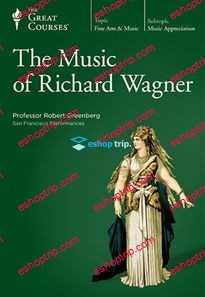



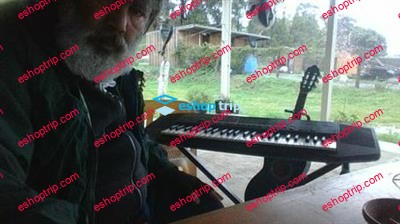

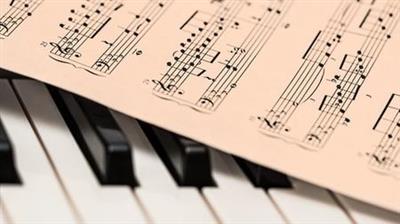
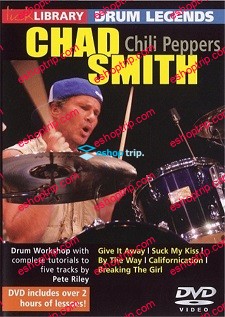

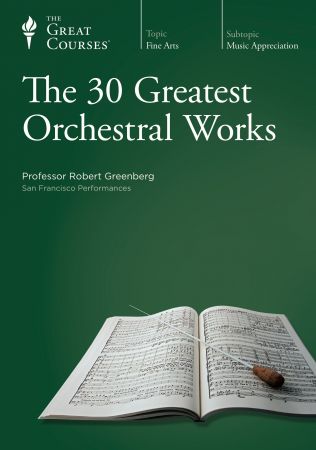
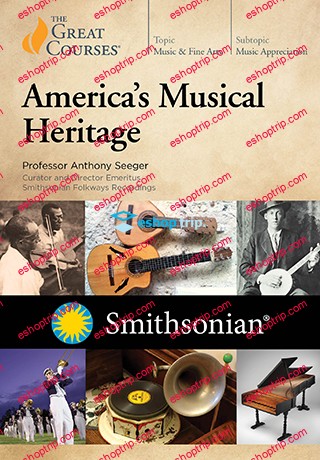
Reviews
There are no reviews yet.